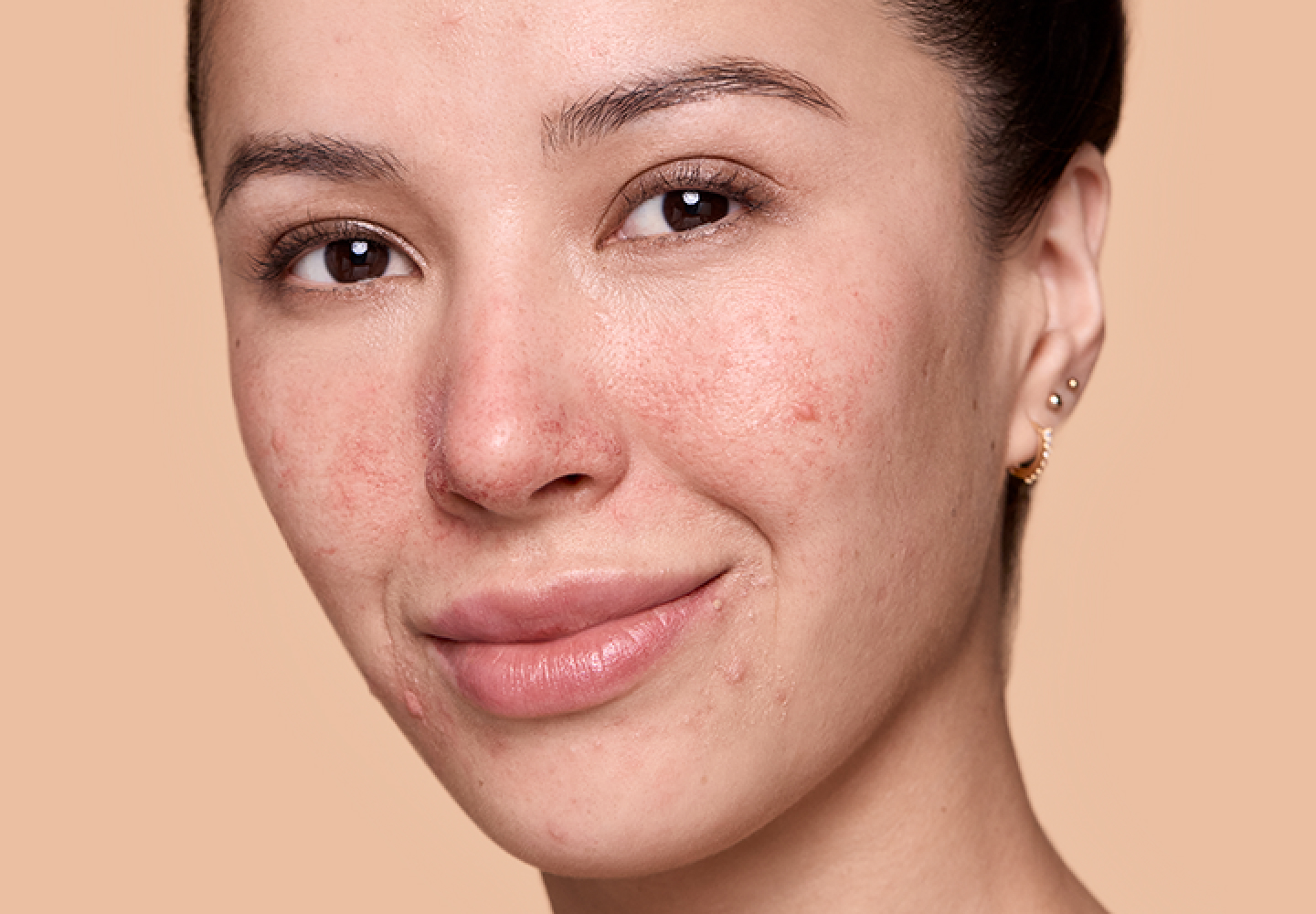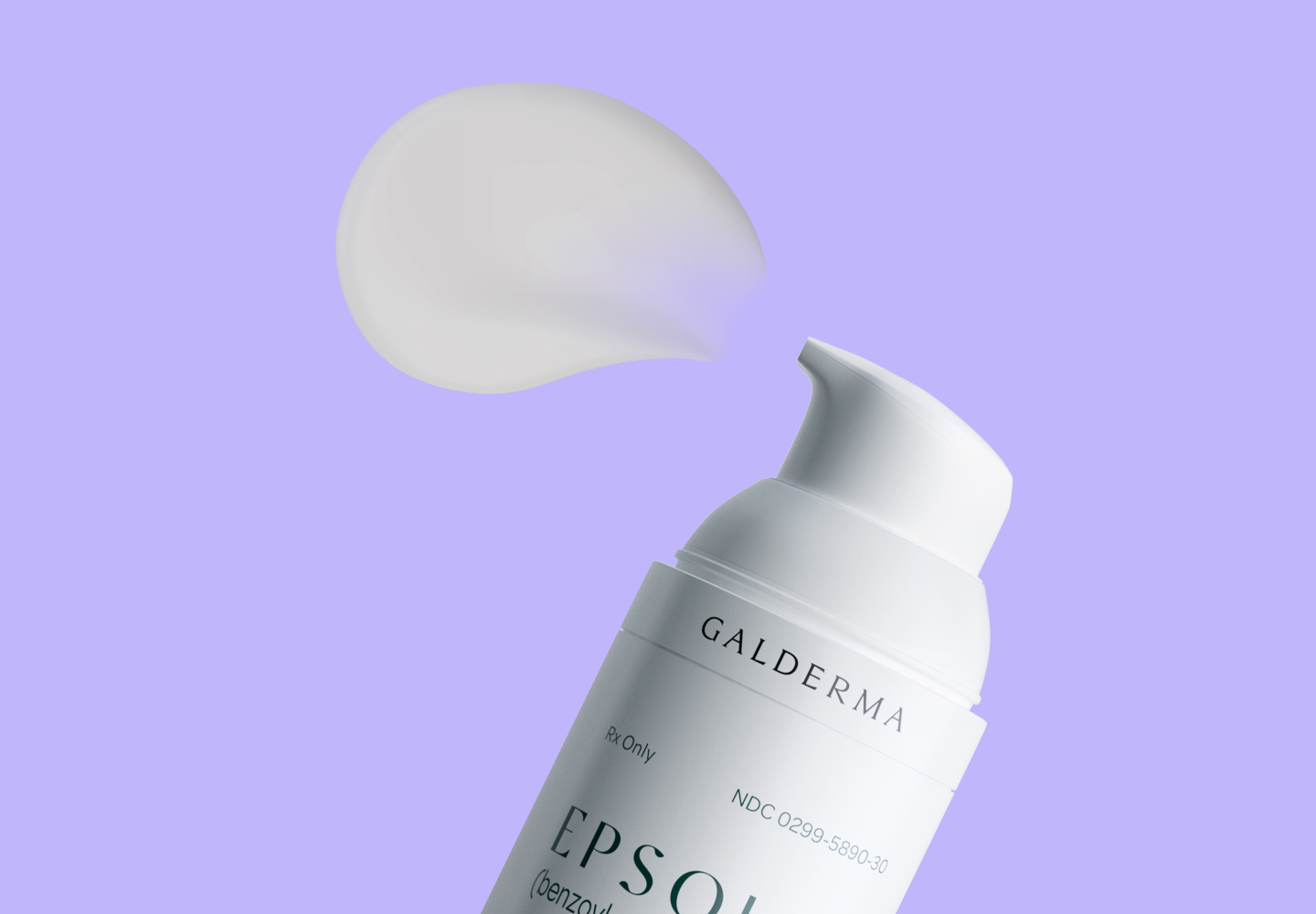
Rosacea care with the brilliant touch of technology1,2

EPSOLAY cream is illuminating the future of skincare with a groundbreaking topical treatment designed to help relieve the bumps and blemishes of rosacea.1-3

Designed for sensitive rosacea skin1
EPSOLAY cream is the first rosacea treatment with microencapsulation technology.1,2


References: 1. EPSOLAY (benzoyl peroxide) cream, 5% [Prescribing Information]. Whippany, NJ: Sol-Gel Technologies Ltd.; April 2021. 2. Galderma Laboratories, L.P.; data on file. Clinical Study Report SGT-54-01; January 8, 2020. 3. Leyden JJ. Randomized, phase 2, dose-ranging study in the treatment of rosacea with encapsulated benzoyl peroxide gel. J Drugs Dermatol. 2014;13(6):685-688. 4. Galderma Laboratories, L.P.; data on file. Clinical Study Report SGT-54-02; March 26, 2020.
IMPORTANT SAFETY INFORMATION
Indication: EPSOLAY® (benzoyl peroxide) Cream, 5% is indicated for the treatment of inflammatory lesions of rosacea in adults. Adverse Events: The most common adverse reactions (incidence ≥ 1%) in patients treated with EPSOLAY Cream were pain, erythema (redness), pruritus (itching) and edema (swelling), all at the application site. Warnings/Precautions: Patients using EPSOLAY Cream may experience hypersensitivity reactions, including anaphylaxis (acute allergic reaction), angioedema (rapid swelling), and urticaria (hives). If serious hypersensitivity reaction occurs, discontinue use of EPSOLAY Cream immediately and seek medical attention/initiate appropriate therapy. Skin Irritation/contact dermatitis may be experienced, including erythema (redness), scaling, dryness, and stinging/burning. Irritation and contact dermatitis may occur. Use a moisturizer and discontinue EPSOLAY Cream if symptoms do not improve. Avoid application to cuts, abrasions, eczematous, or sunburned skin. EPSOLAY Cream may increase photosensitivity, sensitivity to ultraviolet light. Minimize or avoid exposure to natural or artificial sunlight (tanning beds or UVA/B treatment). Use sunscreen or protective clothing when sun exposure cannot be avoided. Discontinue use of EPSOLAY Cream at the first evidence of sunburn.
You are encouraged to report negative side effects of prescription drugs to the FDA. Visit www.fda.gov/medwatch or call 1-800-FDA-1088
